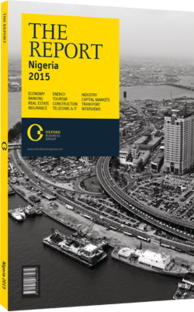Saratu Umar, Executive Secretary, Nigerian Investment Promotion Commission (NIPC): Interview

Interview: Saratu Umar
In what ways have inflows of foreign direct investment (FDI) changed over the past five years?
SARATU UMAR: Nigeria has become a major investment destination on the African continent, averaging an annual inflow of about $7bn in the last six years. Although this may be far from the annual inflow target volume of $13bn per year, it indicates that our economy remains a competitive global investment destination in spite of various challenges. This was supported by Street Journal’s Frontier Market Sentiment Index, which found that investor interest in Nigeria had increased between January 2013 and June 2014, with nearly three in 10 companies including Nigeria on their watch list.
Nigeria’s comparative advantage has rested on its oil and gas sector; however, to absorb and retain private capital, the government’s efforts have been geared towards enhancing the competitiveness and capacity of non-oil activities. These efforts have yielded a substantial level of positive results within the infrastructure, services and manufacturing sectors, attracting interest and commanding significant capital injections.
Historically, the Nigerian economy has maintained strong ties with European countries, which contribute about 30% of annual FDI inflows into the economy. Although the injection of fresh capital investment in greenfield activities has dwindled in the last few years, the country’s investment landscape remains dotted with companies from this economic bloc, with strong interests in various manufacturing activities, as well as oil and gas exploration, production of consumer goods, real estate development, construction, engineering services, downstream petrochemical industries, agro-culture and agro-allied processing.
What can be done to improve the attractiveness of non-oil sectors at the sub-national level?
UMAR: Proactive initiatives at the federal level are supposed to be replicated by state governments to ensure that there are no conflicting regulations, including the duplication of licences or processes, between the state and federal authorities. So far, Lagos State and the Federal Capital Territory (FCT) have complied with this, complementing the federal government’s efforts to build a globally competitive business environment.
A good example is the FCT’s initiative to streamline the administration of land matters in the country through the Abuja Geographic Information System. This has had a tremendous impact in building transparency in the administration of lands and property in the FCT, and a sizeable number of state governments have implemented similar systems. The World Bank published three subnational “Doing Business” reports between 2008 and 2014 that assessed the competitiveness of the states and provided a peer-learning mechanism for state governments. These reports show the gradual improvement achieved through a sustained level of business competitiveness and a reinvigorated investment climate in the various states.
What impact will the expansion of home-grown companies have on joint venture partnerships?
UMAR: In spite of the current surge of Nigerian businesses into other parts of Africa, the prospects for joint venture partnerships between domestic investors and their foreign counterparts remain promising. The UN Conference on Trade and Development’s “World Investment Report 2014” noted that Nigeria is one of the top three countries in terms of intra-African investments. However, our economy still needs an injection of capital via equity, technology and human capacity, as a number of sectors remain underdeveloped due to the lack of one or more of the aforementioned elements.
To counter this, a few sectors have been deregulated to enable private participation. For example, the recent deregulation of the electricity industry has resulted in the sale of unbundled generating and distribution companies. Many of the companies concerned are joint ventures involving Nigerian firms and their foreign business partners, who are bringing in the vital capital needed to grow and sustain our industries.
You have reached the limit of premium articles you can view for free.
Choose from the options below to purchase print or digital editions of our Reports. You can also purchase a website subscription giving you unlimited access to all of our Reports online for 12 months.
If you have already purchased this Report or have a website subscription, please login to continue.

